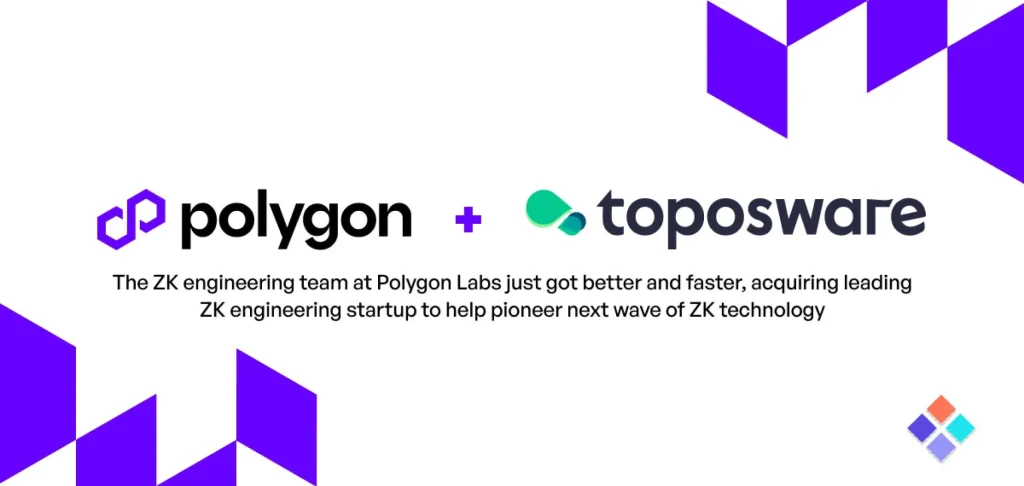In a significant development in the gaming industry, Polygon has been acquired by Valnet, a company known for owning prominent platforms like The Gamer and Game Rant. This Polygon acquisition marks a pivotal moment for the site, which has been a go-to source for video game and pop culture news since its establishment in 2012. Following the sale, numerous editorial staff faced layoffs, leading to a wave of changes within the organization. As Vox Media steps back from its ownership, the focus shifts to how Valnet will steer Polygon’s future in the competitive gaming landscape. With around 6 million users in the U.S., the implications of this acquisition on Polygon’s audience engagement and content strategy are keenly anticipated by industry watchers and fans alike.
In the latest shake-up in digital media, the sale of Polygon to Valnet highlights a trend of ownership transitions within the gaming news sector. Known for its thorough exploration of video game culture, this transfer of ownership raises questions about the continuity of Polygon’s editorial vision amid recent staff reductions. As Valnet takes the reins, it seeks to integrate Polygon into its wider portfolio of gaming brands, potentially reshaping content delivery for its loyal readership. Meanwhile, the impact of Vox Media’s decision to divest from this influential outlet underscores the shifting priorities within the digital publishing landscape. Enthusiasts and analysts alike are watching closely to see how these editorial staff changes will influence the future direction of this well-established gaming website.
Overview of the Polygon Acquisition by Valnet
In a significant shift within the gaming journalism landscape, Polygon has been acquired by Valnet, a company known for its ownership of prominent gaming sites like The Gamer and Game Rant. This Polygon acquisition marks an important moment in the evolution of gaming media, especially considering Polygon’s legacy as a leading source of video game culture and news. Founded in 2012, Polygon has developed a dedicated readership, drawing in approximately 6 million users in the US, which makes this acquisition a notable strategic move for Valnet.
Following the acquisition, the implications on the editorial staff have been immediate and profound. Reports from Kotaku reveal that several key figures in Polygon’s editorial team, including co-founder Chris Plante and senior writer Michael McWhertor, are no longer with the site. The changes have raised concerns about the future direction of Polygon and how it will adapt under new ownership, impacting its coverage of gaming news and features that loyal readers have come to expect.
Impact of Polygon Layoffs on Editorial Integrity
The Polygon layoffs that have occurred due to the acquisition are not just numbers; they symbolize a significant transition in the site’s editorial integrity and voice. Several long-standing staff members have opted to leave, which can potentially alter the quality and approach of its gaming news coverage. This sudden shift raises questions about how the new management will maintain Polygon’s reputation for in-depth features and user engagement, particularly when losing experience and expertise can affect editorial decision-making.
Furthermore, the departure of seasoned writers and editors may influence Polygon’s ability to report on gaming developments effectively. The new team, while potentially fresh and dynamic, will face the challenge of retaining Polygon’s identity as they navigate the competitive gaming journalism landscape. The challenge will be to balance new editorial directions while still honoring the legacy created under Vox Media.
Transitioning from Vox Media to Valnet
Polygon’s sale by Vox Media to Valnet represents a larger trend in the media industry, where companies are reevaluating their portfolios and focusing on core areas of growth. Under Vox Media, Polygon flourished as part of an influential media conglomerate that included other successful brands like The Verge. The transition raises questions about the resources and creative freedom that Polygon may have under Valnet, especially considering the latter’s track record in niche gaming content.
As Vox Media refocuses its strategy to leverage its existing brands and explore new formats such as audio and video programming, the question arises: what will be the impact on Polygon’s future? Valnet’s commitment to enhancing its position in the gaming information category suggests a strategic vision, but the success of this vision will depend heavily on its ability to attract and retain talented individuals, ensuring that the journalistic quality remains high during this transformative time.
Valnet’s Strategic Goals with Polygon
Valnet’s acquisition of Polygon is not just about expanding its portfolio; it reflects a strategic decision to solidify its leadership in the gaming news sector. The firm is expected to channel investments into Polygon, enhancing its content offerings and possibly exploring innovative formats that resonate well with today’s gaming audiences. The acquisition aligns with Valnet’s mission to create a synergy among its gaming properties, thereby driving traffic across its platforms.
However, this strategic move comes with the implicit responsibility to uphold the editorial standards that Polygon’s readership values. Maintaining a balance between commercial objectives and journalistic integrity is crucial as Valnet looks to capitalize on Polygon’s existing audience while attracting new users eager for fresh and engaging content.
Future of Gaming News after Polygon’s Sale
The future of traditional gaming news sites like Polygon is increasingly being challenged by emerging forms of content distribution and new media consumers that have different preferences. With the Polygon sale to Valnet, the site is presented with both opportunities and challenges as it seeks to navigate a changing landscape. As gaming evolves and diversifies, Polygon must explore ways to remain relevant, timely, and engaging to a modern audience eager for content that resonates more personally with their gaming experiences.
Editorial shifts often lead to a reevaluation of content strategy, and for Polygon, this could mean reconsidering which voices are amplified and what stories are told. The ongoing changes in editorial staff may allow fresh perspectives, but they must effectively align with the site’s established reputation to appeal to both loyal and new readers. Polygon’s survival in a competitive digital environment hinge on its adaptability and commitment to delivering high-quality gaming journalism.
Challenges Faced by Polygon’s New Management
The management at Polygon is entering an environment fraught with challenges as they adapt to the changes after the acquisition by Valnet. One of the most pressing issues is how to stabilize the editorial team while ensuring that the content retains its quality and resonates with readers. The departure of several key personnel means that the new management will need to quickly embrace and integrate new talent to avoid lapses in editorial voice and authority.
Moreover, new management at Polygon must strategically navigate the pressures of audience expectations alongside business demands from Valnet. The challenge lies in balancing creative editorial decisions with the need to generate revenue, particularly as the site seeks to grow its audience while maintaining engagement levels. By embracing innovative content strategies and processes, Polygon can position itself effectively against competitors and uphold its significant place in the gaming news landscape.
Editorial Changes and Community Response
Following the Polygon acquisition, editorial changes have sparked varied responses within the gaming community. Long-time readers who valued the unique perspectives of departed writers have expressed concern about how the new team will uphold Polygon’s standards. Many supporters of the site hope that the new management will keep the site’s ethos intact while still pushing for innovation and improvement.
Feedback from readers and community members provides crucial insights into how Polygon’s future content is perceived. As the new editorial staff begins to shape the prodigious legacy of Polygon, actively engaging with the community and remaining responsive to their audiences will be key. This dialogue can help ensure the site remains relevant to its loyal following while adapting to new challenges and opportunities.
Valnet’s Vision for Polygon’s Growth
Valnet has expressed a clear vision for ongoing content development and audience growth for Polygon. As gaming continues to reach wider audiences, the potential for engaging storytelling and informed commentary is vast. The new ownership indicates a commitment to enhancing Polygon’s reach and reinforcing its position as an authority on video games and pop culture.
As part of Valnet’s strategy, significant investments may be directed towards multimedia content and interactive experiences, catering to the changing preferences of gamers. This vision could foster not just an expansion of topics covered by Polygon but also improve how communities engage with the content. Adjusting to a dynamic landscape will be essential not only for Polygon’s success under Valnet, but for maintaining its identity in a competitive arena.
Cultural Shift in Gaming Journalism with Polygon’s Sale
The sale of Polygon to Valnet encapsulates a larger cultural shift within gaming journalism, one that emphasizes the need for adaptability in response to market demands. As gaming continues to evolve, so too must the voices that represent it. The changes sparked by the acquisition have the potential to redefine what readers expect from gaming news websites and how those expectations are met by organizations.
The evolution of gaming journalism goes beyond what is reported; it is about how news is conveyed and the narratives that are constructed around reputable sources like Polygon. Ensuring that diverse voices and stories are represented will be critical for both Polygon and the broader gaming community as it navigates through these transformative times.
Frequently Asked Questions
What happened with the Polygon acquisition by Valnet?
Polygon was acquired by Valnet, which also owns popular gaming sites like The Gamer and Game Rant. The acquisition resulted in changes within Polygon, including significant layoffs among its long-time editorial staff.
Why did Polygon experience layoffs after the Valnet acquisition?
The Polygon layoffs followed the completion of the acquisition by Valnet, reflecting the company’s strategic decisions to restructure and streamline operations within its newly expanded portfolio of gaming brands.
What are the implications of the Vox Media Polygon sale for its audience?
The Vox Media Polygon sale to Valnet marks a shift in the site’s direction, as Vox plans to redirect its resources to other digital publications. This change may affect the type and volume of gaming news and features available to Polygon’s audience in the future.
Who are some of the editorial staff that left Polygon after the acquisition?
Following the Polygon acquisition by Valnet, several prominent editorial staff members announced their departure on social media. Notable exits include co-founder Chris Plante, senior writer Michael McWhertor, and deputy editor Matthew Reynolds.
What does Valnet aim to achieve with the acquisition of Polygon?
Valnet aims to strengthen its position in the gaming information category by incorporating Polygon into its portfolio. The acquisition allows Valnet to leverage Polygon’s established audience and content expertise to enhance its gaming-related offerings.
How does the Polygon acquisition impact the site’s content strategy?
With the Polygon acquisition by Valnet, the content strategy may shift to align with Valnet’s broader goals for its gaming brands. This could mean changes in editorial focus, content style, and possibly the introduction of new coverage areas in gaming news.
What should readers expect from Polygon after the Valnet acquisition?
Readers can expect Polygon to continue providing in-depth coverage of video games; however, changes in staff and editorial direction may influence the types of stories and features that are prioritized in the future.
What were the reasons cited for the Polygon sale from Vox Media?
Vox Media stated that the Polygon sale to Valnet allows them to concentrate their resources on other growth priorities within their portfolio, while letting Valnet enhance its leadership in gaming information.
How many users does Polygon attract currently?
According to Comscore, Polygon attracts approximately 6 million users in the US, underscoring its reach and influence in the gaming and pop culture sectors, even after the acquisition by Valnet.
What changes have been confirmed regarding the remaining Polygon editorial staff?
After the acquisition by Valnet, some editorial staff, including deputy editor Maddy Myers and games editor Zoë Hannah, remain with Polygon, though significant changes to the team have occurred due to layoffs.
| Key Point | Details |
|---|---|
| Acquisition | Polygon has been acquired by Valnet, a company that owns other gaming sites like The Gamer and Game Rant. |
| Layoffs | Several long-time Polygon employees, including co-founder Chris Plante and senior writer Michael McWhertor, have left the company due to layoffs or personal decisions. |
| Previous Ownership | Polygon was previously owned by Vox Media, which also owns The Verge. |
| Future Plans | Vox Media will redirect its resources to other businesses while Valnet aims to enhance its gaming presence. |
| User Base | Founded in 2012, Polygon has a significant readership, attracting around 6 million users in the US. |
Summary
The Polygon acquisition marks a significant shift in the gaming media landscape as Valnet takes over the platform previously held by Vox Media. With several layoffs affecting key staff, this acquisition reflects the evolving dynamics in digital media, where consolidation and realignment of resources are common. As Valnet aims to strengthen its portfolio of gaming brands, the future of Polygon remains uncertain yet strategically positioned to capture the gaming audience.



